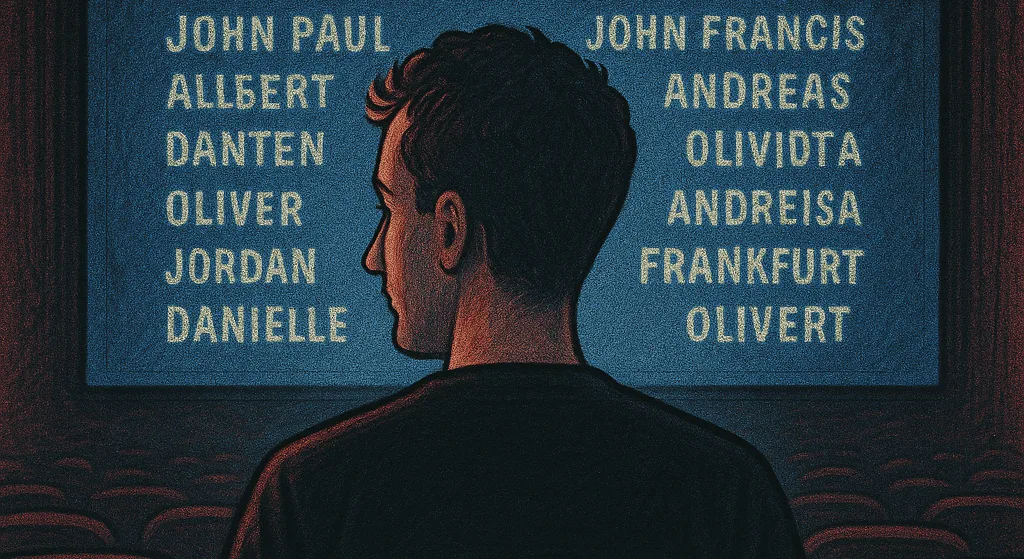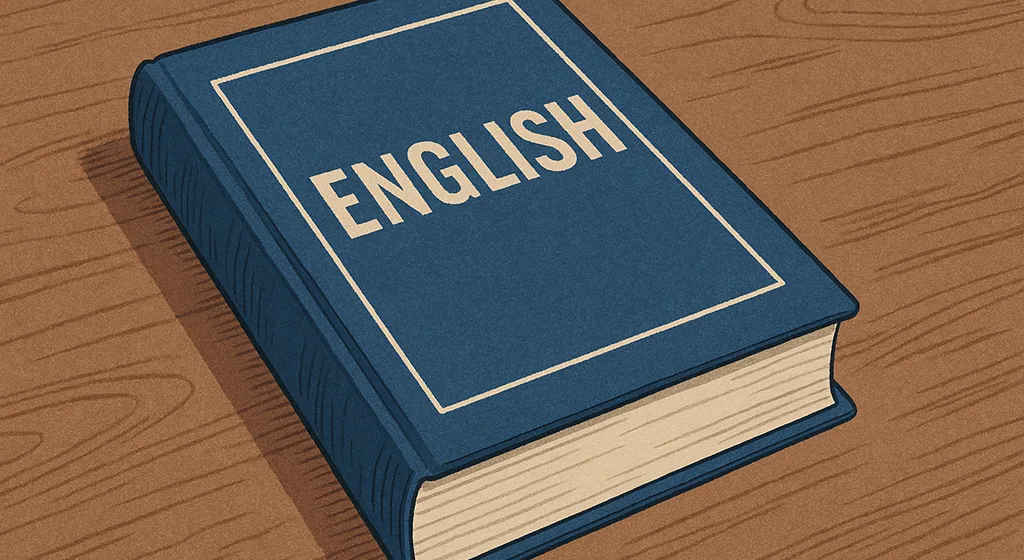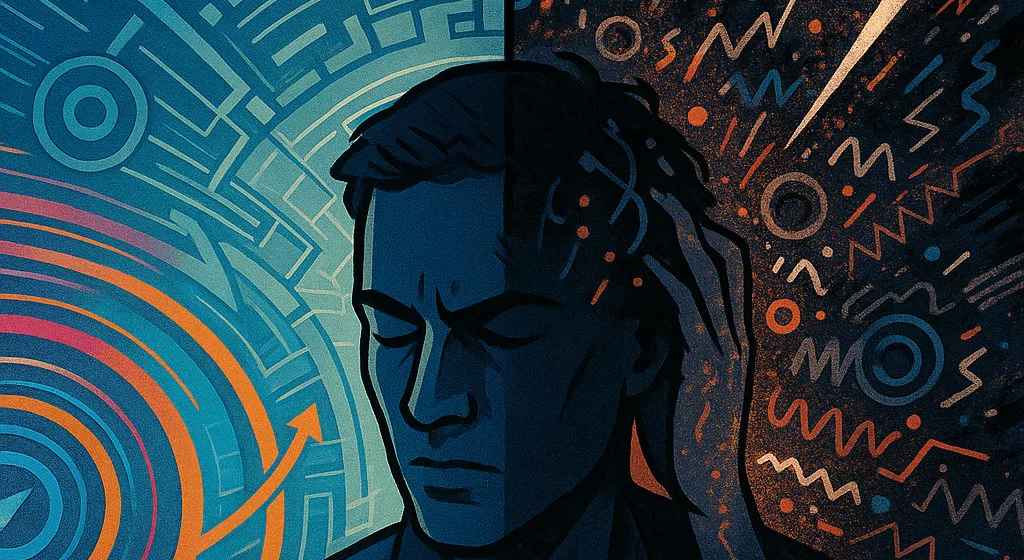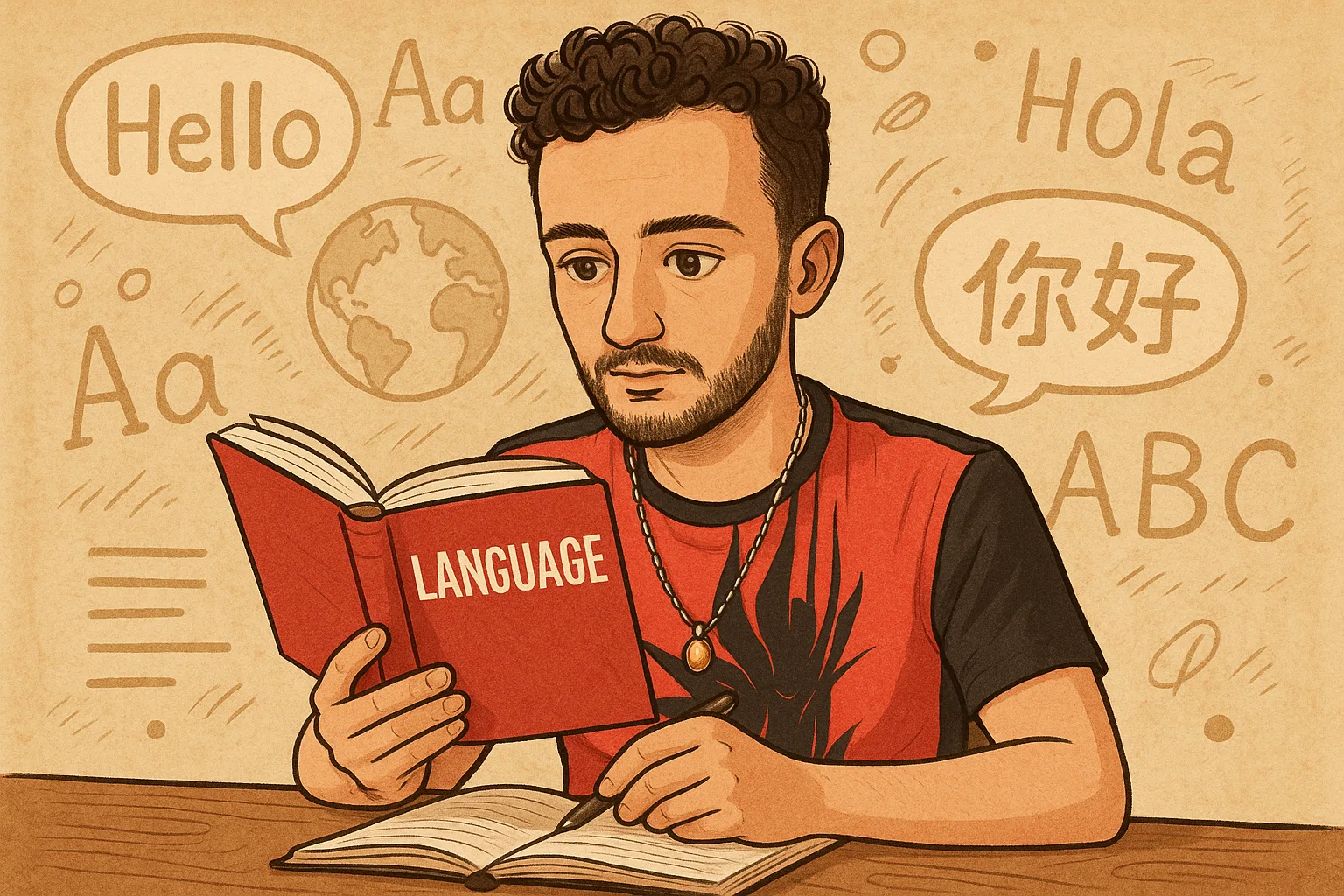In life, I have several major special interests. Two of them are very old, one probably dating back to my childhood. But what is a special interest? The correct term to define it is “restricted interests.” The term is rarely used because it implies that autistic people are not interested in much. Special interests are the equivalent of a passion in a allistic person (non-autistic person, see Glossary). The difference lies in their intensity, their pervasiveness, and the role they play.
📋 TL;DR : In short words
- Definition: intense, constant interests, more powerful than a passion.
- Role: emotional and sensory refuge in an unpredictable world.
- Intensity: omnipresent, morning and nighttime thoughts, infodumps, daily hours.
- My interests: programming, cinema, Tolkien, languages, psychiatry.
The role of special interests
Generally speaking, special interests play a very important role in the life of a person with autism. They are very invasive—in the strict sense of the word—and act as emotional and sensory regulators. In a world that is considered unpredictable by the person concerned, a person with autism will likely find something constant and predictable in their special interest. They will often spend a large part of their time on it. It is not uncommon for an autistic person to “infodump” (the act of providing a large amount of information quickly, see Glossary) those around them about their special interest. It is a way of socializing and sharing their knowledge on a subject they are familiar with.
These interests are part of the diagnostic criteria in the DSM-5 (the Diagnostic and Statistical Manual of Mental Disorders). However, they are not necessary for diagnosis. According to Wikipedia, 75 to 90% of the autistic population has at least one special interest.
Their intensity and sometimes intrusive nature
When I try to explain the importance of special interests to me, I use a scale of 1 to 10. I explain that a hobby is around 2, a passion is 8, and a special interest is 12 or 15. That’s how important it is to me. I wake up and fall asleep thinking about my loved ones. I also think about them when I’m overwhelmed and try desperately to find a safe place, a space that I can control.
My conversations mainly revolve around my special interests, unless the other person makes an effort to talk about themselves or bring up a topic that interests me. Not because I like talking about myself, but because it’s the only way I know how to interact. It’s more or less functional, giving the impression that I can be egocentric when in fact I’m all ears to what those around me have to say. Self-centered is the correct term. It means that I am primarily focused on my inner world, whereas egocentric means that the person thinks they are the center of the world.
A little popular science
In social situations, I often feel lost and find it difficult to navigate. This is normal: the brains of neurotypical people are designed to function socially. The brains of autistic people, on the other hand, are designed for data collection. This often makes them experts in their specific areas of interest.
From a scientific perspective, it is important to note that studies suggest alterations in the dopaminergic reward circuit in individuals with autism. This circuit is activated when the individual engages in their special interest. The interest triggers the release of a large amount of dopamine. This is why special interests seem so omnipresent in the lives of individuals with autism.
My special interests
Over time, I have developed several special interests. Some, however, have been with me for a long time, since my early childhood. Here are a few of them, before discussing them in more depth in future articles (particularly those I don’t cover here).
An expert developer before I turned 18

Code as a first language
My oldest special interest is cinema, but the one I’m going to talk about first is programming. When I talk about it, I talk about computer science, but that’s incorrect because I’m completely incapable of assembling a computer and can barely manage command lines. Programming, on the other hand, came naturally to me from a very early age. So much so that I became a professional developer. I created my first basic websites when I was 11 years old. But very quickly, I felt that I could speak code better than any language. Programming has a predictable and determined side to it, so it seemed logical.
In just a few years, to the increasing surprise of those around me, I became capable of producing highly complex websites, explaining concepts to others, and debugging other people’s code. I spoke code better than any language. And I enjoyed correcting it and optimizing it more and more. I taught myself by reading bits of code, without worrying about explanations. From programming websites, I moved on to more complex languages and became a debugging pro, to the point where I actually enjoyed it. At work, I was often way ahead of the game and took a lot of initiative.
An extremely intrusive interest
To describe the intensity, I once found myself programming for almost 19 hours a day for a week, including the weekend, forgetting to eat and barely sleeping, without feeling tired. This is because of the special interest in this ability to stimulate autistic people, where any non-autistic person would probably have burned out. Some research confirms that autistic people can invest a large part of their time in their special interests, sometimes at the expense of sleep and food. As another indication, I calculated the time I spent programming before I turned 18 and came up with a figure between 10,000 and 17,000 hours, which corresponds to about 6 years of full-time work. It seems unlikely, but I spent all my evenings and weekends programming, and I experienced my first manic episode at age 16, when the amount of time I spent coding exploded and I hardly slept at all.
Today, I take regular breaks, feeling like I’ve done it all, but the special interest is still in my head, regularly visualizing bits of code to calm myself down. When I tell someone I’m a developer, they often ask me what I code in. So here is the list of languages that I have mastered to almost the same level, in order of learning: PHP, SQL, JavaScript, C, Python, Java, C++, and Kotlin.
Cinema as my oldest special interest

Genesis
In addition to various sciences, space, and the universe, cinema has been a particular interest throughout my life. It has changed form a few times. But I have vivid memories of films I saw as a child, especially the first Harry Potter movie, which I saw during a ski vacation and which scared me a lot, by the way. I then became hooked on science fiction and fantasy before broadening my horizons to include all types of cinema, from arthouse films to blockbusters. During this period, I was extremely interested in box office figures, statistics, anecdotes, and filming techniques. I even knew the global and American figures, as well as the box office takings in France.
The cinema as a haven of peace
When I arrived in mainland France, I started spending my time at the movies, going to see dozens of films every year, which had become my haven of peace. I ended up getting an unlimited pass and spent about ten hours listing all the films I had seen on SensCritique (a sort of French version of Letterboxd) and Trakt. I made lists, collections, and statistics of all kinds.
The integration of series as cinematographic works
Series gradually became part of this special interest, because the more I watched, the more I focused on those that I felt fit into this framework. I ended up watching 232 of them. I eliminated more and more channels whose production quality I considered too poor or too risky (a series being very time-consuming). Until I restricted my viewing to productions from two channels, HBO and Apple TV+. I banned Netflix, whose “quantity over quality” policy I consider very harmful to cinema and television. Today, I hardly watch any series anymore. I wait to see the reviews and then start watching if they seem encouraging enough.
An interest that has gradually become more superficial
When it comes to movies, in recent years I have taken less time to learn about films. My interest has become more “superficial” in the sense that I was content to massively watch films and form my own opinion, or even write an amateur review if I felt like it. I may share a few of them here, as they have been such an integral part of my interest.
The decline of my interest in theaters
More recently, I have been going to the cinema less and less. Not necessarily because I have lost interest, but rather because I have become increasingly intolerant of an audience that is becoming less and less respectful. I canceled my unlimited subscription, marking the end of my attraction to movie theaters, but I still keep a list of genres and directors for which I will make the effort to go to the cinema. The latest was Ballerina, from the world of John Wick, and the next will be Avatar: Fire and Ash, a cult classic with its polished staging and unique 3D effects.
Some random information
Figures: In 2016, I broke my personal record by watching 84 films at the cinema, including 35 in October alone (1.13 films per day). In total, I have watched more than 600 films at the cinema, with almost a third of all the films I have watched being seen on the big screen (1,968 films in total).
Selection criteria:
- What I watch:
- Certain filmmakers (Spielberg, Scorsese, Nolan, Dupieux, Dumont, and a few others)
- Certain genre films (science fiction, fantasy)
- Certain sagas (Avatar, The Batman (for now), Alien)
- HBO and Apple TV+ productions receive favorable reviews
- What I reject:
- All Netflix productions
- Any Disney production except Pixar and Avatar (Marvel Studios is therefore crossed off my list)
- Any series rated below 7 on SensCritique (because otherwise I watch everything)
My annual viewing rituals:
- Star Wars, usually around May 4 (May the 4th (May the force)), only the first 6 episodes that made cinema history
- Sam Raimi’s first Spider-Man trilogy
- Robert Zemeckis’ Back to the Future trilogy
- James Cameron’s Avatar films
- The John Wick saga by Chad Stahelski
- Peter Jackson’s Lord of the Rings trilogy, which even illustrates my special interest in…
The Tolkien Saga

In a nutshell, my most recent special interest stems from Peter Jackson’s films, which ultimately convinced me to start reading the author’s works in chronological order. I am currently reading The Lord of the Rings, and even my clothing style reflects how much this universe, though brand new, occupies my mind.
Having worn necklaces for the past ten years, some of which have broken (much to my dismay), it was Sauron’s One Ring that ended up hanging around my neck when my sea turtle broke and was lost. One of my stims is to take the necklace and spin the pendant/ring, which is why I never go without it and never take it off my neck. More recently, I bought a book to learn Quenya, Tolkien’s High Elvish, an extremely rich language with hundreds of defined words. Which brings me to my fourth special interest.
Languages

My fascination with the specificities of languages
This one is more subtle because I didn’t even realize it was one until I did a ski course this year. But given my ability to learn very quickly, and above all my passion for the specifics of languages, it seemed obvious that it was a major one. I learned to read at the normal age, but much faster than my peers. My older sister read Harry Potter to me, before I finished it on my own before the end of first grade. I then started reading a lot of books and excelled in French throughout my schooling, with one teacher even making it her mission to prevent me from getting a perfect score on her dictations in seventh grade.
When a teacher made me fall in love with English
In middle school, we started learning English. And, although I was talented, I was mainly helped by a teacher with… unusual techniques. She was known throughout the island of Guadeloupe for her teaching methods, which did not comply with those of the national education system. However, it was thanks to her methods that I and the rest of the class developed a level of proficiency far superior to that of high school students, even though we were only in sixth grade. By that grade, we had mastered subtleties that even native English speakers find difficult. We also worked extensively on oral skills, developing very strong abilities as well as writing skills. She taught me in seventh and ninth grade, and I continued to develop my skills by watching films—the other teachers I had had lowered their teaching standards.
Bipolar disorder, autism, and psychiatry

Finally, another specific area of interest that I have also spent a great deal of time studying is psychiatry. I am broadening this term because my knowledge is very extensive on bipolar disorder and autism, but I also have a great deal of knowledge on several other psychiatric topics.
I will pause here to describe my interest, as I will return to it throughout this blog: it consisted of reading hundreds of articles on each of these topics, whether popular science, more detailed articles, or even scientific studies; so I will regularly refer to these studies to explain concepts or provide statistics, which fascinate me—as you may have noticed—as much as those in cinema.
These interests that lull me and regulate me
All these interests are what obsess me most in my life. They permeate every aspect of my life:
- Social: All it takes is a keyword related to my interests to get me started on a long monologue. It will only stop when I feel I have exhausted all the information I have to share with my conversation partner. A simple pause in conversation is also enough to trigger me.
- Professional: I studied computer science after high school and work as a developer.
- Emotional: I will fall back on one of these interests to regulate myself.
- Sensory: Armed with my headphones and sunglasses, these interests also serve as sensory regulators.
If I were forced to give up one of these interests, it would be like mourning the loss of a loved one. What about you? What are you interested in? What are you passionate about?
Originally published in French on: 27 Aug 2025 — translated to English on: 17 Nov 2025.

